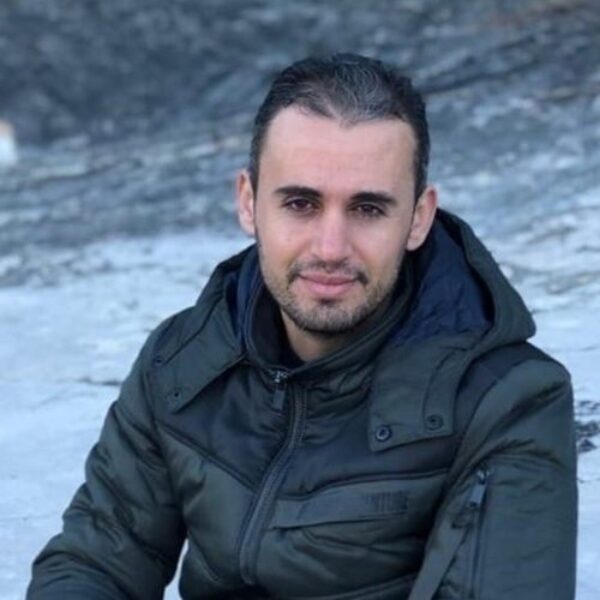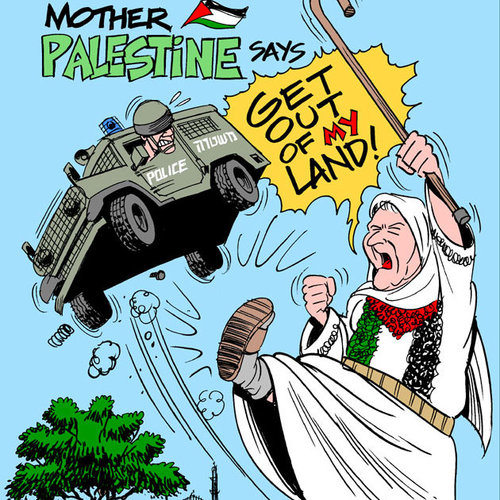When I was 13, I was sleeping in my grandparents’ house when suddenly I woke up to a very loud explosion. At first, I was shocked, thinking a war was starting. But then I realized it was a “routine” explosion, and put my head back on the pillow, trying to go back to sleep. A couple of minutes later, I heard people shouting for a medic. My uncle was among them, and the shouting came from the veranda of the house. I rushed to the door and saw my mother.
Her face was streaked with tears, dust and blood. She looked directly at me – I can't forget that look – and her eyes were full of fear, anxiety, weakness and passion all at once. She reached her hand out to me while people carried her to the ambulance, but I couldn't move. I stood at the door without making a move. I felt very lonely. Time stopped. I thought I'd lose her. Many scary thoughts came to my mind. Minutes later, I snapped out of it and ran after her like a crazy person. But it was too late; the ambulance had left
I was at home, and my mother was at the hospital. Or maybe she was in the morgue. I was terrified.
The Palestinian mother
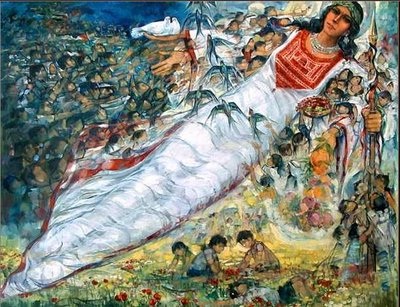
“It is the time to give my mother something back after a very long struggle to make our life better." I said that when I earned my first salary. Now, I'm an English teacher at a very well-known college in Gaza. My youngest brother graduated as an Arabic teacher, my oldest sister is a teacher at a primary school, and my younger sister has completed her education to be a social worker. We are all well educated, despite the poverty my family suffered at the beginning.
Palestinians revere their mothers for the challenges they overcome every day, including poverty, the occupation and our society's expectations of them. Thus, as a Palestinian, I believe I have a very great mother. Here's her story:
First baby during the First Intifada
My mother's story as a mother began in the First Intifada when she was pregnant with me after four years of waiting. Most of the time, she told me, “the occupation forces used to set curfews. Sometimes, I had to resist my pregnancy pains until the curfew ended, then go to the health center." She added, "You were my first baby; bearing you wasn't easy but I loved that pain."
Thank goodness there weren’t any strikes when the time for my birth came. There wasn't a hospital in my city, Rafah, so my mother had to go to Khan Younus 10 km away. My parents called me Jehad in honor of Abu Jehad (Khalil Alwazeer), one of the prominent leaders of the PLO (Palestine Liberation Organization). It was known that he was the director of the First Intifada.
One day there were hard knocks on our door, my mother told me. It was our neighbor. He was escaping from the Israeli army after they saw him throwing stones. "Hide me, hide me," he pleaded. “You were between my arms then,” she recalled. “I gave you to him and told him to sit on the veranda. When the soldiers came, they looked around, but they found only a family sitting normally with a baby. They didn't recognize him, and left." Few mothers can do such things, but as a Palestinian, my mother was strong and she raised us to be strong too.
Poverty as a way of life
Like most families in our refugee camp, people were very poor. Houses were small and crowded. My family lived with my two uncles' families, my aunt and grandmother in one house that had one kitchen and a toilet. My parents, my three siblings and I slept, ate, studied, watched TV and played in one room. Due to the lack of space, I used to spend most of the time at my grandparents’ (my mother's parents) house. My aunt, who I consider my second mother, would look after me there.
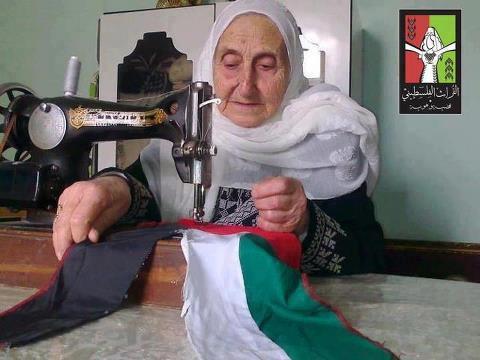
My father had an accident when I was 4 years old. It affected his brain, and he couldn't work anymore. My mother had to take the responsibility for supporting the family then. At the beginning, it wasn't easy for her. Then, she sold a piece of her gold that my father had given her as a part of their marriage ceremony to buy a sewing machine. She sewed school uniforms and headscarves for girls and fixed clothes for our neighbors. Also, her brothers (my uncles) helped her.
I don't remember feeling deprived at any time. Anything my siblings and I needed, my mother tried her best to provide. Sometimes, we demanded a lot and that increased pressure on her, but she never let us down. Sometimes, she used to borrow money to buy us clothes for school and Eid (a Muslim celebration). I used to cry to her to buy me electronic games. When I remember that, I regret it, but I feel very grateful to her at the same time. We were children; we couldn't understand the difficult life our family had and we wanted to live like other children.
When I turned 5, she insisted on registering me for kindergarten, as well as my siblings. She tried her best to provide us with all of the books and study materials we needed for each grade of school.
Finally, the big family house was divided among my two uncles' families and ours. We now had our own small house, with two rooms, a small kitchen and a bathroom.
The crazy Second Intifada
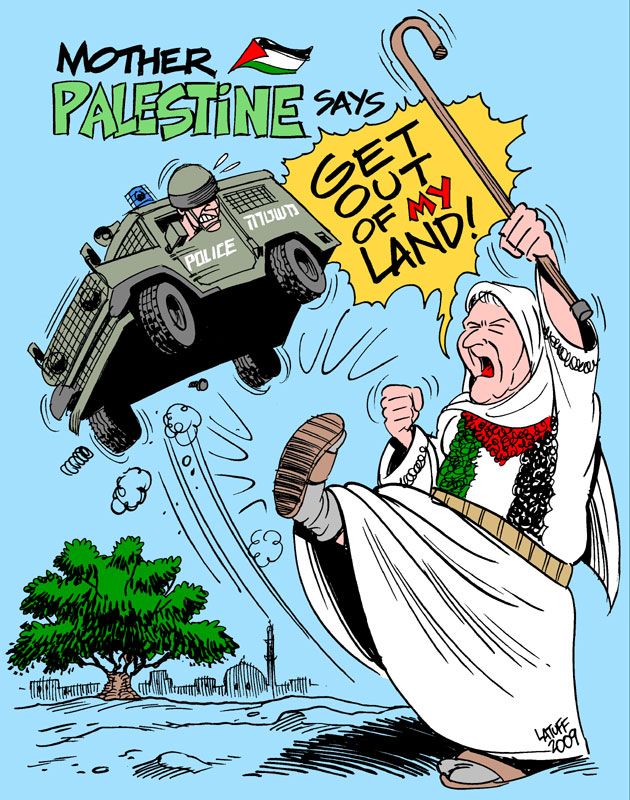
Our house was 300 meters away from the Egyptian border, which was occupied by the Israeli army at that time. A military barrack with its guard tower was across from our neighborhood. I was 13 when the Second Intifada erupted. Our area was like a battlefield. I used to challenge my friends to differentiate the various sounds of gunfire: M16s vs. AK-47s vs. BKCs, vs. mortars. vs. grenades, for example. Then, of course, there also were the distinctive sound of tanks and bulldozers. We used to sleep to the shooting and explosions and wake up with them as well. They were all part of the same horrible symphony.
Martyrs were being created every day, and invasions were a part of our nights almost every week. Most of the houses in my neighborhood were destroyed, and the house where the American Rachel Corrie was killed by an Israeli bulldozer wasn't very far from where I lived. I witnessed the killing of the British journalist James Miller near our house as well.
My mother was the family's “security supervisor.” She used to locate the most secure places for us to play with our friends. When the Israeli army invaded, she woke us up and moved us to a safer place. Sometimes, when an invasion was far from our house, she would stand guard.
Woman of steel
One night, the Israelis launched an invasion near the border by our neighborhood. My mother took us to my grandparents’ house, which was a little safer than ours, but she stayed at our house. She sat with my two uncles' wives and our neighbor in front of the house. When an Apache missile hit just centimeters away, my uncle's and our neighbor's houses were destroyed. It was a miracle no one was killed. Our neighbor lost his leg and sight. My first uncle's wife was critically injured, although she recovered later. My mother had some shrapnel in her face, eye and near her kidney.
Although she was injured, she found the strength to run to the house where I was staying. I saw her shouting, telling my uncle to rescue the others and bring the small bag in which she kept our important papers, a little money and gold. She had saved that money and gold for the education of my siblings and me. My mother was concerned about us, even when she thought she was going to die. She said later, “I thought I'd have the same destiny as my sister Samira.”
Samira was my aunt, who I considered my second mother. She later got married in Egypt, where she had a safer life. However, she visited us from time to time. One day, she was sitting in front of her aunt's house, waiting for the Maghrib Athan (Sunset prayer call) so she could break her fast. However, Allah had other plans. A mortar exploded near them, and I lost my second mother. I cried a lot that day. However, Alhamdulillah (thank goodness), I did not lose my mother. Thank goodness that she lived to laugh when we call her and my uncles' wives “women of steel.”
Family responsibilities
When my mother was in the hospital that time when I was 13, the family responsibilities that my mother had fulfilled alone were distributed to various people. My uncles gave us money, my aunts cooked, my sisters did the housework and I did the shopping. However, we couldn't run the house as my mother did.
Thank goodness that my mother recovered fast. She went right back to work. "You have to focus only on your studying," she told us. We tried to convince her that we study and take care of the family, but she refused. That day, I realized that if I really wanted to show her my gratitude, I should study hard and make my mother proud. Now we are all graduates, and I have a very good job. It's time to give back to her all of what she gave us. May Allah bless and protect her.

